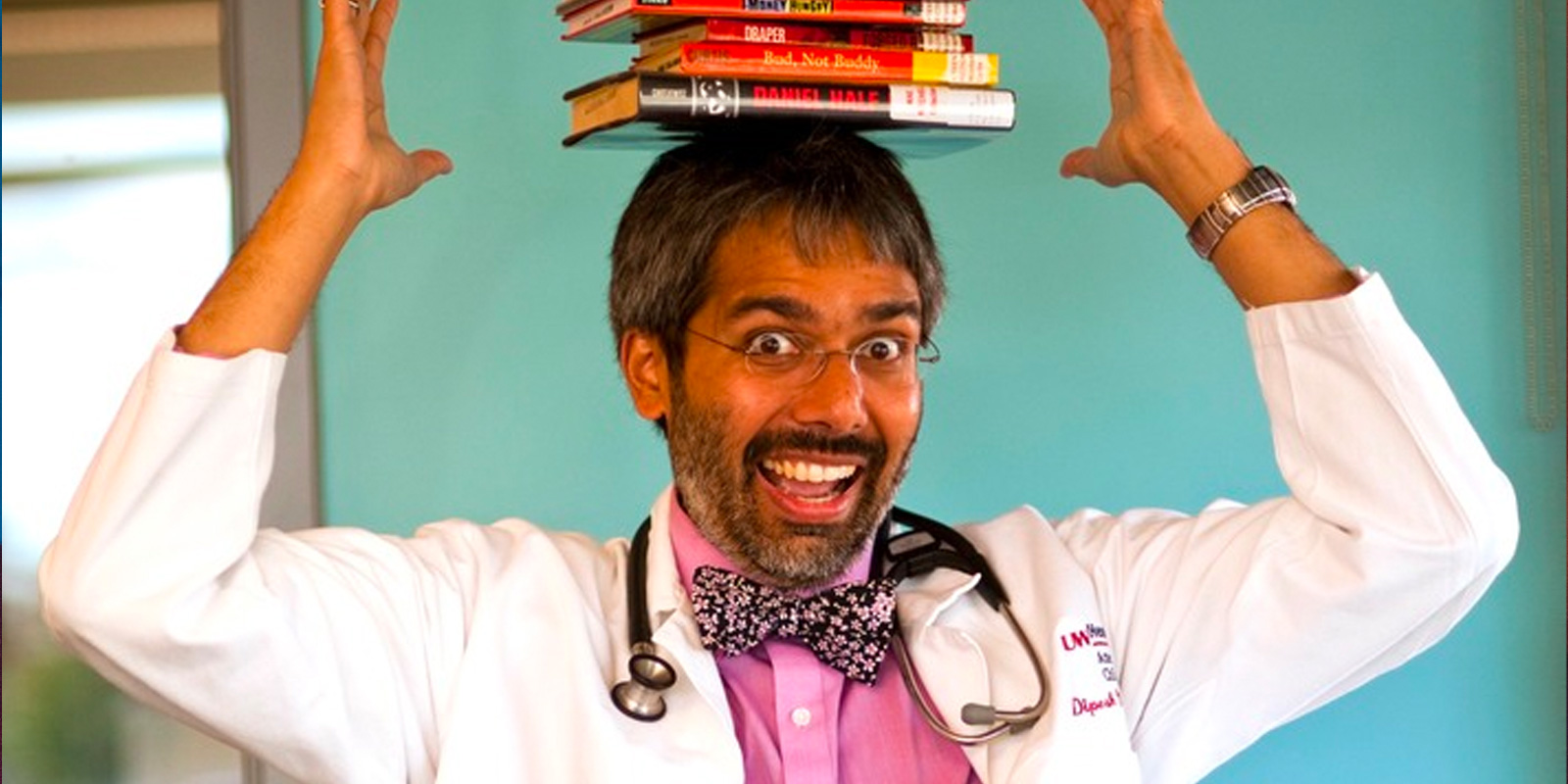Over the organization’s 30 years, Reach Out and Read (ROR) has become known for giving out books in pediatricians’ offices, but according to Dr. Dipesh Navsaria, if you focus just on the books, you’re missing the point.
“Books are the most visible part of our program,” says Dr. Navsaria, vice chair of the board and medical director, ROR Wisconsin). “But a book on its own won’t do much.”
In the right hands, a book is more than a book. When he sees a young patient in a clinic, Dr. Navsaria says that if he had to choose, he’d rather have a book in his hand than a stethoscope around his neck. “When I present a child with a book,” he explains. “I can watch how she accepts it from me, whether she knows what do with it and how her parent might use it as a route for interaction. As a doctor doing a checkup, all that data is more important to me than heart rate.”
In a publication he co-authored for Ascend at the Aspen Institute, he describes one clinical visit that exemplifies the power of the ROR model:
Another good thing about books, according to Dr. Navsaria, is they don’t have batteries. He has seen various trendy technologies come and go, starting with Baby Einstein videos that promised to make kids smart until Disney was eventually compelled to drop the word educational from its marketing and to refund purchases. The latest wave of educational apps should elicit skepticism, he warns, saying, “There is no app to replace your lap.” (Anyone else think this should be a bumper sticker?)
Dr. Navsaria, who is an Associate Professor of Pediatrics at the University of Wisconsin School of Medicine and Public Health, became involved with ROR even before attending medical school. While studying biology and English literature at Boston University in the early 1990s, he worked at Boston City Hospital and witnessed the power of the model.
“Clinicians are often overworked, and they are sometimes treating patients from communities that face many challenges,” he recalls. “There is always pressure to see everyone, to move faster, but Reach Out and Read allowed us to slow down and observe—setting aside a checklist or a template.” Ironically, “adding” ROR enables pediatricians to do their jobs more efficiently.
“It reminds them why they went into this field,” Dr. Navsaria affirms.
Dr. Navsaria coauthored a recent study that confirms his initial impressions and his personal experience, finding that ROR “boosted clinic morale, increased provider satisfaction, improved patient-clinician relationships and promoted a literacy-rich environment”—compared to clinics that don’t. Merely handing out books without formal training and parent coaching doesn’t seem as effective either.
The COVID-19 pandemic challenged ROR to pivot to virtual settings, and Dr. Navsaria maintains all of the elements that drive the in-person program—with the added benefit of allowing pediatricians to see home environments.
The wave of consciousness about racial inequity that began last summer has also challenged ROR, prompting the organization to acknowledge the burden of racism that Black families face and to incorporate equity into its practices. (In November 2020, the American Medical Association finally termed racism a public health threat.)
Language. Literacy. Love. Those are the three words that capture ROR’s approach before, during and after the pandemic. Navsaria’s recent JAMA Pediatrics article—coauthored with the organization’s medical director, Dr. Peri Klass—puts it this way: “Framing reading aloud and book sharing as a way parents show love to their children speaks to the science of reading aloud to children and to the emotional and relational benefits that scaffold parent identity and self-efficacy.”
Simply put, reading aloud is good for you. Early literacy goals matter, but there is much more inside the book and the act of shared reading. Bonding between parent and child, building the muscles of memory and cognition, enhancing attention and imagination all enter the picture when the child climbs into your lap and opens a book.
“People think our program is about books,” Dr. Navsaria smiles. “But secretly, it’s also parenting support.”

Mark Swartz
Mark Swartz writes about efforts to improve early care and education as well as developments in the U.S. care economy. He lives in Maryland.



